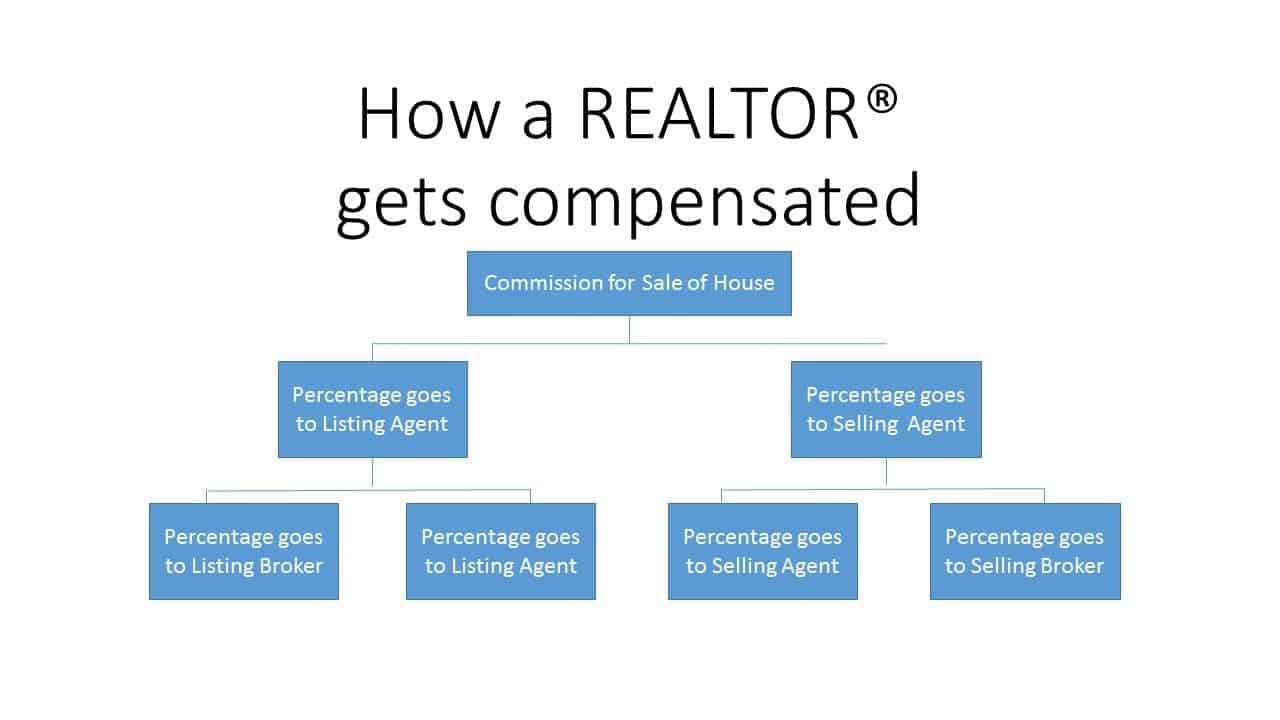Most real estate agents are compensated through commissions – payments made directly to real estate brokers for services rendered in the sale or purchase of real property. A commission is usually a percentage of the property’s selling price, although it can be a flat fee. To understand how real estate agents are paid, it helps to know about the relationship between an agent and a broker. Both agents and brokers are licensed by the state in which they work. Agents are licensed salespersons who work for and under the umbrella of a designated broker. Agents cannot work independently, and they are prohibited from being compensated a commission directly by consumers. Brokers, on the other hand, are able to work independently and/or hire real estate agents (salespersons). All real estate commissions must be paid directly to a broker, then the broker splits the commission with any other agents involved in the transaction.

How a REALTOR gets compensated
The broker’s compensation is specified in the listing agreement, a contract between a seller and the listing broker that details the conditions of the listing. The rate of the broker’s commission is negotiable in every case; in fact, it is a violation of federal antitrust laws for members of the profession to attempt, however subtly, to impose uniform commission rates. Commissions are taken out of the sale proceeds, and it’s usually the seller who pays the commission, unless the buyer and seller negotiate a split. Most sellers factor the commission into the asking price, so it can be argued that the buyer pays at least some of the commission in either case (due to the higher asking price).
Real estate commissions are often shared among many people. In a typical real estate transaction, the commission might be split four ways, among the:
Listing agent – the agent who took the listing from a seller
Listing broker – the broker for whom the listing agent works
Buyer’s agent – the agent who represents the buyer
Buyer’s agent’s broker – the broker for whom the buyer’s agent work
Of course, as in other professions, earnings are often eroded by taxes and business expenses. Federal, state and self-employment taxes, along with the costs of doing business (insurance, dues and fees, MLS fees, advertising, etc.), can end up taking sizable chunks out of otherwise substantial commissions. No Settlement = Agent is not compensated for the work they did.
The Bottom Line
Most real estate agents are compensated through commissions paid directly to brokers when transactions are settled. A single commission is often split multiple ways among the listing agent and broker, and the buyer’s agent and broker. The commission split a particular agent receives depends on the agreement the agent has with his or her sponsoring broker. It is common for more experienced and top-producing agents to be compensated with a larger percentage of the commission. To find out more: Code of Ethics and Standards of Practice of the National Association of REALTORS